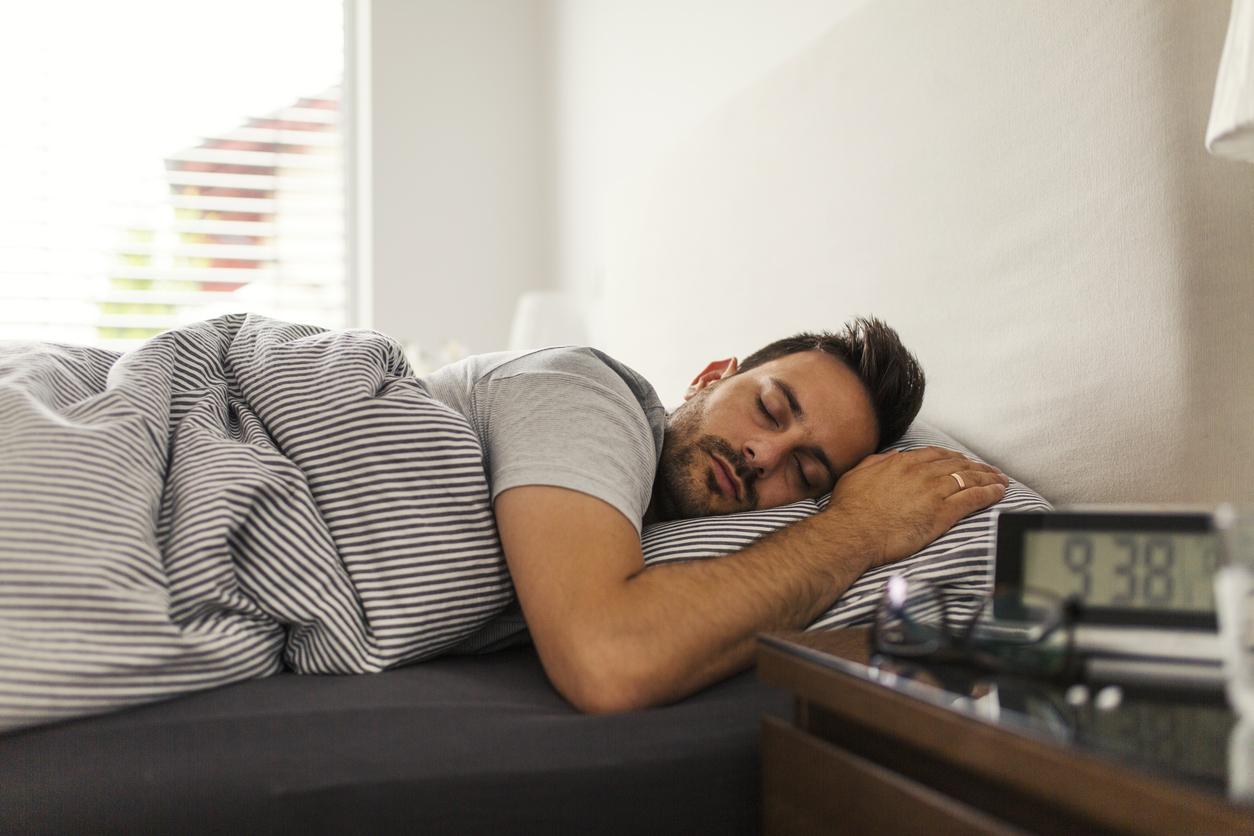Compensating for the lack of sleep that some people suffer during the week by sleeping more on Saturdays and Sundays is good for mental health.

- Around 25% of French people reported having suffered from depression in 2023.
- “Depressive disorders are characterized by persistent sadness or a lasting loss of the ability to experience interest/pleasure in activities that previously provided it,” says the WHO on its website.
- A new study indicates that allowing yourself to sleep longer on the weekend reduces depressive symptoms.
People who go to bed earlier and sleep in on weekends are less likely to feel depressed, according to a new search.
The analysis focused on data from 7,719 participants who completed two questionnaires: one on their potential depressive disorders and another on their potential sleep disorders. The study authors then compared the participants’ times of falling asleep and waking up on weekdays and weekends, then related them to the mental health of each member of the cohort.
Sleep and depression: a more marked association in men
The results showed that around 46% of participants slept longer on weekends than on weekdays.
Overall, people who slept longer on weekends tended to have fewer depressive symptoms. A closer look at the data found that participants who slept one or two hours more on weekends were at least 38% less likely to have depressive symptoms. This reduction in depressive symptoms did not apply to people who reported catch-up sleep durations of three hours or more on weekends.
Further analysis also showed that the link between weekend catch-up sleep and depressive symptoms was primarily present in people who slept 6 hours or less on weekdays. This association also tended to be stronger among men and adults younger than 65 years.
Sleep and depression: “further studies are needed”
“Our results provide additional epidemiological evidence for the effects of sleep on depressive symptoms, but further studies are needed to understand the underlying biological mechanisms,” indicate the researchers in conclusion.
The article, titled “Association between weekend catch-up sleep and depressive symptoms in American adults: Finding from NHANES 2017-2020”, was authored by Zhicheng Luo, Tingting Wang, Wenqiong Wu, Shipeng Yan and Lizhang Chen.

According to a recent Ipsos survey, around 25% of French people have felt depressed for at least several weeks during the previous year, a figure that rises to 31% among Generation Z.
“Nearly one in ten people (9%) have considered suicide or self-harm in the past year,” completes the polling institute.
“Depressive disorders are characterized by persistent sadness or a lasting loss of the ability to experience interest/pleasure in activities that previously provided it,” indicates the WHO on its website.
















